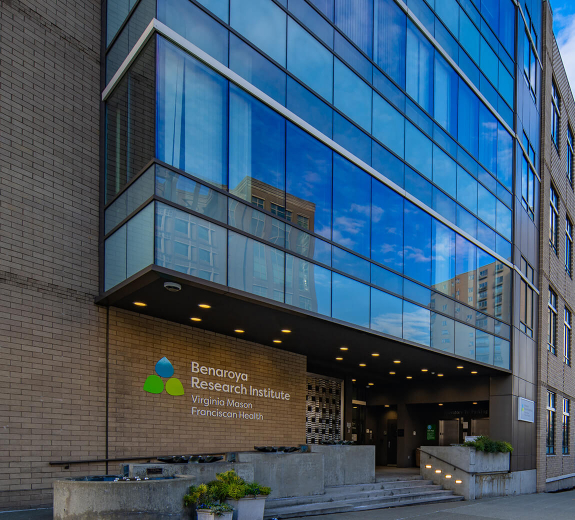Benaroya Research Institute at Virginia Mason (BRI) recently received a $5.3 million grant from the National Institutes of Allergy and Infectious Diseases (NIAID) for William Kwok, PhD, and his team to further research allergens. Dr. Kwok and David Robinson, MD, of the Virginia Mason Asthma and Allergy Clinic, will work together to study immune response to environmental allergens. The scientists will use tetramers to identify and study cells from individuals who are allergic to cat dander, tree and grass pollen, peanuts, mold and others.
Allergies are prevalent in many people’s lives. It is estimated that about 25 percent of the population has allergies based on positive skin test results. About 36 million Americans suffer from allergic rhinitis, 10 million Americans suffer from allergic asthma, and 2 to 4 percent of children and 1 to 2 percent of adults have food allergies.
Tetramers can specifically identify the piece of the allergen molecule (peptide) that a person reacts with. This allows for safer ways to monitor and desensitize patients to allergies. The hope is that this work can lead to an understanding of the role certain cells play in allergies. It is intended that the cells being studied can regulate immune responses that lead to allergic reaction.
Currently allergy shots, given to increase people’s tolerance for a particular allergen, contain the whole allergen to reduce the symptoms of allergy. In some cases, the shots may cause life threatening symptoms such as anaphylactic shock and low blood pressure. This research work will lead to development of vaccines that use a small fragment of the allergen (peptide) which will be much safer compared to the whole allergen. It may be able to change the immune system’s tolerance for the allergy without using the actual allergen.
"The long term hope is that the peptides will be more specific with fewer side effects than giving shots with the whole allergen," says Dr. Kwok. "We would like to develop a more individualized, specific treatment that will reduce any risks using the whole allergen." "This grant gives us an opportunity to make a significant difference for people who suffer from allergies and elevate their options for care – yet another great example of how we’re taking research from the bench at BRI to the bedside at Virginia Mason," said Dr. Robinson. Dr. Robinson continued, "From a basic science standpoint, being able to identify what the T-cell recognizes in the allergen is a fundamental step in the allergic immune response that we have not been able to define before. This will potentially allow researchers to tease apart fine details of the allergic immune response and this could lead to other treatment approaches that have not yet even been conceived."



